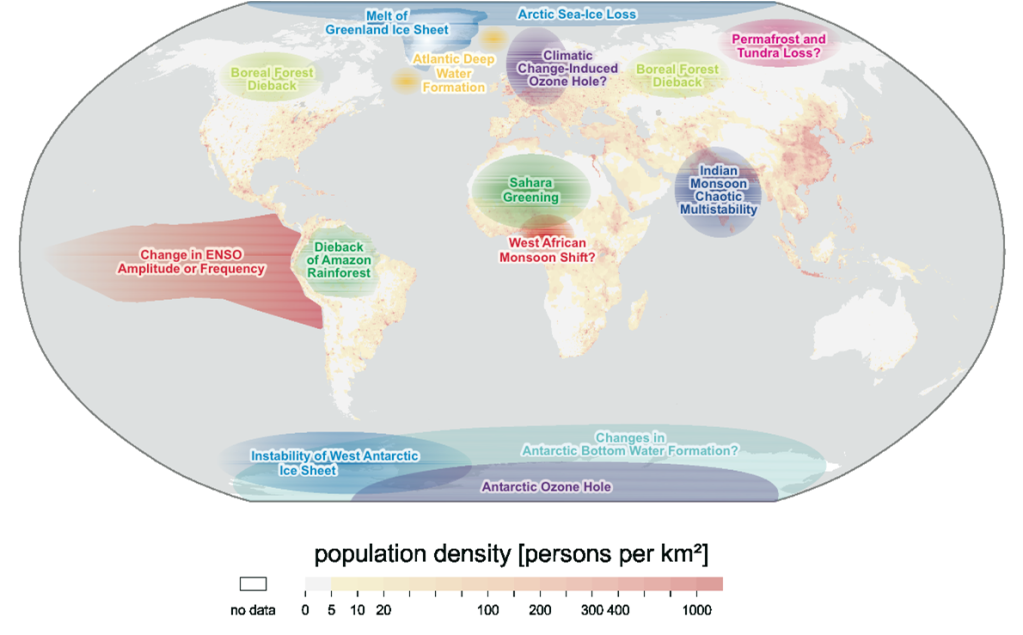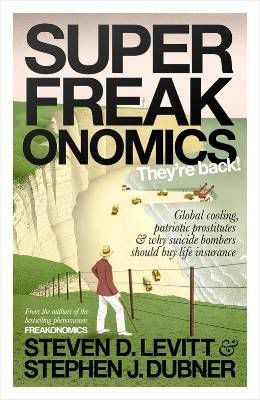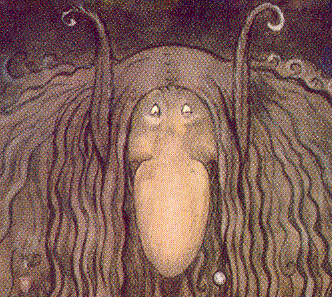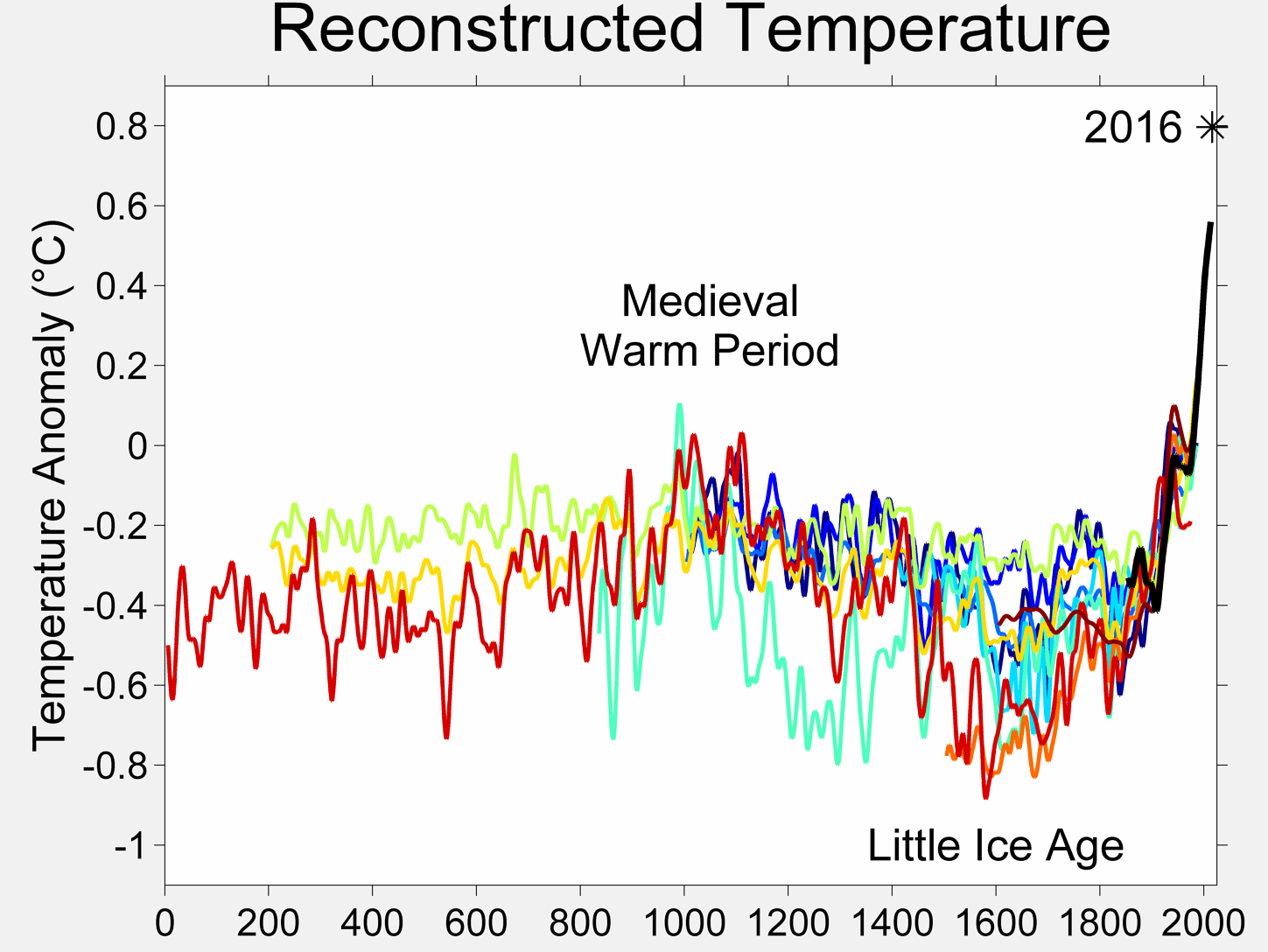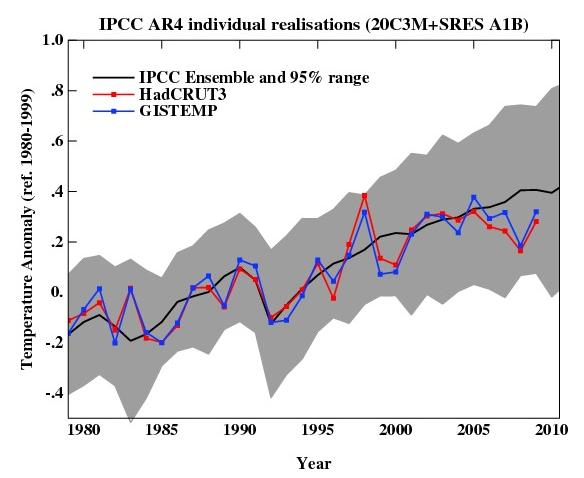Voodoo om Voodoo science
IPCCs ordförande Rajendra Pachauri kallade en artikel av V.K.Raina om Himalayas glaciärer för "voodoo science", betydande dålig vetenskap eller pseudovetenskap, olyckligtvis just som felet kring Himalayas glaciärer blev uppmärksammat. Det har lett till att det cirkulerar krav på att Pachauri ska be om förlåtelse för uttalandet när författaren "visade sig ha rätt".
Dock finns det inget samband mellan artikeln i fråga och uppmärksamheten kring det felaktiga årtalet. Ingenstans i artikeln nämns något om årtalet eller ens IPCCs rapport. Artikeln i sig innehåller ett flertal metodproblem och hävdar att förändringarna i Himalayas stora glaciärer skulle vara en följd av förändringar i klimatet för 6 000-15 000 år sedan. Påståenden som saknar vetenskaplig trovärdighet.
Att det finns fel i en IPCC-rapport betyder inte att en annan artikel blir mer vetenskapligt korrekt.
För en genomgång av läget för Himalayas glaciärer, bakgrunden till förvirringen och kommentarer kring Rainas metod rekommenderas denna presentation.
A bad-smelling Rose-garden
David Rose vid Daily Mail tyckte inte att det räckte med att rapportera om glaciärerna utan han påstår att Murari Lal, som var ansvarig för sektionen om Himalayas glaciärer " admitted it [årtalet 2035] was included purely to put political pressure on world leaders". Understött med citatet:
Som ju inte, även om det handlade om 2035 och är korrekt citerat, styrker påståendet om att det bara fanns där för att sätta politisk press på "världens ledare".It related to several countries in this region and their water sources. We thought that if we can highlight it, it will impact policy-makers and politicians and encourage them to take some concrete action. It had importance for the region, so we thought we should put it in.
Men det är mer tveksamt än så. Lal har efter att ha fått reda på innehållet i artikeln gått ut med ett uttalande där han uttrycker sin irritation över att han blivit felaktigt framställd i artikeln.
I am not a Glaciologist but a Climatologist and the statement attributed to me in "Glacier scientist: I knew data hadn't been verified” By David Rose in UK Daily Mail on 24th January 2010 has been wrongly placed. I never said this story at any time and strongly condemn the writer for attributing this to me.Rose menar att han har behandlat Lal korrekt och att Lal nu ångrar vad han sagt. Så ord står mot ord.
More specifically, I never said during my conversation with Rose the following statements being attributed to me:
(a) 'it was included purely to put political pressure on world leaders.'
(b) ‘It related to several countries in this region and their water sources. We thought that if we can highlight it, it will impact policy-makers and politicians and encourage them to take some concrete action.'
(c) ‘It had importance for the region, so we thought we should put it in.’, and
(d) ‘We as authors followed them to the letter,’ he said. ‘Had we received information that undermined the claim, we would have included it.’.
Contrary to the claim by Rose that "Hayley Fowler of Newcastle University, suggested that their draft did not mention that Himalayan glaciers in the Karakoram range are growing rapidly," the Asia Chapter does include this finding under section 10.2.4.2 on page 477.
What I said was "As authors, we had to report only the best available science (inclusive of a select few grey literatures as per the rules of procedure) which is "policy-relevant and yet policy-neutral" and that's what we collectively did while writing the Asia Chapter. None of the authors in Asia Chapter were Glaciologist and we entirely trusted the findings reported in the WWF 2005 Report and the underlying references as scientifically sound and relevant in the context of climate change impacts in the region.
Regards,
Dr. Murari Lal
En test på vem som är pålitligast kan ju vara att jämföra det verifieringsbara påståendet om Hayley Fowler och de växande glaciärerna. Alltså Roses påstående i artikeln:
For example, Hayley Fowler of Newcastle University, suggested that their draft did not mention that Himalayan glaciers in the Karakoram range are growing rapidly, citing a paper published in the influential journal Nature. In their response, the IPCC authors said, bizarrely, that they were 'unable to get hold of the suggested references', but would 'consider' this in their final version. They failed to do so.[min fetstil]De skulle inte ha inkluderat den växande glaciären enligt Rose men enligt Lal.
Slå upp AR4 WG2 10.2.4.2 sida 477 och där står:
A recent study in northern Pakistan, however, suggests that glaciers in the IndusPrecis som Lal skrev. Värt att notera är att Jonathan Rose även tidigare haft svårt att hålla sig på den smala vägen i klimatsammanhang.
Valley region may be expanding, due to increases in winter precipitation over western Himalayas during the past 40 years (Archer and Fowler, 2004).
För den intresserade finns en ordentlig redogörelse om bakgrunden till Fowler-citatet här. Brist på specialkompetens och slarvig källkontroll räcker långt för att hamna fel även bland ledande forskare. Några konspirationer eller politiska motiv behövs inte.
Oväder om en pust
Sunday Times har upptäckt att en artikel som refereras till angående ökning av väderrelaterade naturkatastrofer inte var publicerad utan var under review då rapporten färdigställdes. Detta påstås vara ett allvarligt fel och enligt tidningen ge en överdriven bild av situationen.
IPCC har här direkt gått ut med ett uttalande där de tillbakavisar tidningens påståenden:
The January 24 Sunday Times ran a misleading and baseless story attacking the way the Fourth Assessment Report of the IPCC handled an important question concerning recent trends in economic losses from climate-related disasters. The article, entitled “UN Wrongly Linked Global Warming to Natural Disasters”, is by Jonathan Leake. The Sunday Times article gets the story wrong on two key points.Den som vill kan ju naturligtvis läsa tex. rapportens avsnitt 1.3.8-9 och kontrollera.
The first is that it incorrectly assumes that a brief section on trends in economic losses from climate-related disasters is everything the IPCC Fourth Assessment Report (2007) has to say about changes in extremes and disasters. In fact, the Fourth Assessment Report reaches many important conclusions, at many locations in the report, about the role of climate change in extreme events. The assessment addresses both observations of past changes and projections of future changes in sectors ranging from heat waves and precipitation to wildfires. Each of these is a careful assessment of the available evidence, with a thorough consideration of the confidence with which each conclusion can be drawn.
The second problem with the article in the Sunday Times is its baseless attack on the section of the report on trends in economic losses from disasters. This section of the IPCC report is a balanced treatment of a complicated and important issue. It clearly makes the point that one study detected an increase in economic losses, corrected for values at risk, but that other studies have not detected such a trend. The tone is balanced, and the section contains many important qualifiers. In writing, reviewing, and editing this section, IPCC procedures were carefully followed to produce the policy-relevant assessment that is the IPCC mandate.
Sunday Times undanhåller också läsaren att den ifrågavarande artikeln av Robert Muir-Wood var del av en Workshop om klimatförändring och naturkatastrofer där ett flertal forskare kommer till liknande slutsatser. Det hade kanske förstört den bra historien.
IPCCs "förbud" mot icke peer-review
IPCCs rapporter baserar sig till allra största delen på vetenskapliga artiklar publicerade i tidskrifter med peer-review. Detta för att hålla en så hög kvalité som möjligt. Det har uppstått ett rykte om att endast artiklar som genomgått peer-review får användas enligt IPCCs principer. Detta stämmer inte. Tvärtom finns det riktlinjer för användandet av övriga källor i Annex 2 av Procedures for the preparation, review, acceptance, adoption, approval and publication of IPCC reports.
Slutsats: "Kolla källan" gäller forskare, journalister och allmänhet.


